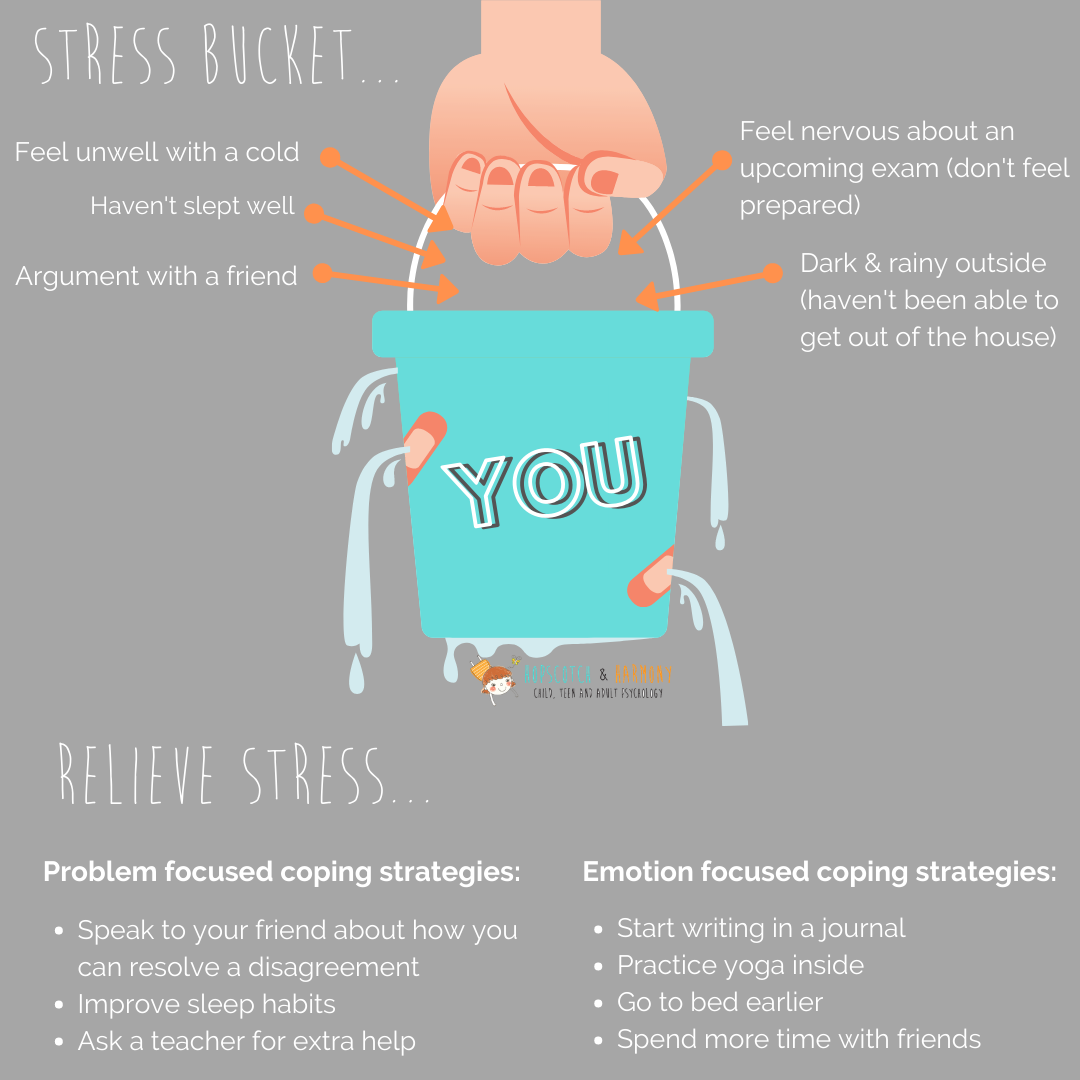|
Alyce Galea, Psychologist Early on in therapy, teenagers often find it hard to identify the stressors or triggers that might be contributing to their difficulties. One way that you can start to identify your current stressors is by doing the stress bucket activity. I often like to conceptualise our wellbeing as a bucket.
Stressors can be categorised into three domains:
Once we have determined what our current stressors are, it is important to identify those stressors that you have some control over, and those that you have absolutely no control over. That way, we can then focus on problem solving ways of relieving the stress of situations that you may be able to change, even slightly. . Two ways we can learn to relieve stress are:
For example: Regularly practicing relaxation or deep breathing, exercise, starting a journal, listening to music.  Alyce Galea is a psychologist at Hopscotch & Harmony who works with adolescents and young adults across a wide range of settings, including schools and community mental health services (Headspace). She is particularly interested in supporting young people experiencing mood and anxiety disorders, low self-esteem and interpersonal difficulties; and has a particular interest in working with young women exhibiting traits of Borderline Personality Disorder. Comments are closed.
|
Categories
All
|
Hopscotch & HarmonyAt Hopscotch & Harmony Psychology, you can expect compassionate care and evidence-based guidance on your journey to wellness.
With clinics in Werribee and Belmont, as well as providing online counselling to clients who live throughout Australia, our dedicated team of psychologists and dietitians are committed to providing support to children, teenagers and adults. With a focus on understanding your unique needs, we offer tailored solutions to foster growth and resilience. Trust in our experience and dedication as we work together towards your well-being. Welcome to a place where healing begins and possibilities abound. |
Our services |
Contact usHopscotch & Harmony
Child, Teen and Adult Psychology Our Locations:
WERRIBEE: 1/167-179 Shaws Rd
BELMONT: 92 Roslyn Rd AUSTRALIA-WIDE: Online counselling |
Hopscotch and Harmony respectfully recognise the Aboriginal and Torres Strait Islander people as the first Peoples of the continent now called Australia.
We acknowledge the Bunurong and Wadawurrung people of the Kulin Nation, the traditional owners of the land on which we work, and pay our respects to their Elders, past, present and emerging.
© 2024 Hopscotch and Harmony Pty Ltd



 RSS Feed
RSS Feed
